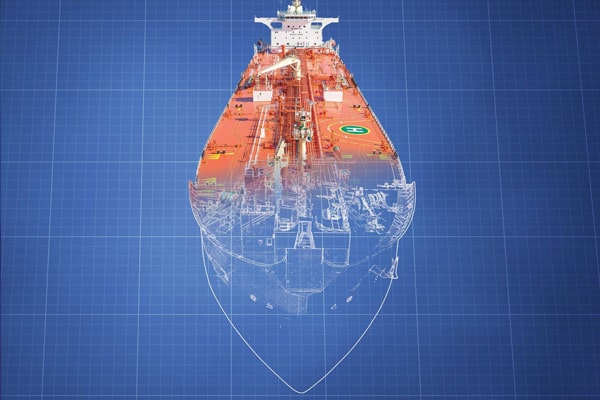
Technological Advances in Surveying, Securing Evidence in the Era of Electronic Reporting
Use of technology in surveying has advanced with many advantages. However, we can't lose sight of the fact that the traditional method of report writing, using handwritten notes, is here to stay for a long time. Tradition still plays an important role as the benchmark for assessing the quality of surveyor reports.
The bicycle remains popular even though the motorcycle was invented over a century ago. Activities centered on sail boating, kayaking and kite surfing are still enjoyed, yet jet skis and power boating also have their place in today's modern world of maximizing experience. Two systems, with their different values, can exist side by side. That's exactly the point of this chapter.
With the increasing complexity of marine and offshore assets, and associated operational activities, surveyors are raising the bar on how individually tailored services can be delivered promptly to our clients. Most of them will expect to hear from a surveyor in real time, in advance of formal final reporting.
It is of the utmost importance to identify future challenges in this fast-changing landscape. As independent marine surveyors we have a responsibility to take full advantage of the technology available to us.
Some of the new technologies mentioned in this blog will help to address the risk of human errors and omissions during evidence collection. However, rapid technological advances may also introduce disruptive changes, and these may give rise to new problems that challenge the economic, legal and ethical fabric of surveying and claims professionals. Not the least of these is the risk of cyber threats being introduced through the use of new technologies.
It is therefore important that surveyors understand the possibility of cyber-security threats or vulnerabilities around any incident under survey.
Digital changes are promoting innovation and demanding advanced methods of inspection and investigating technologies. These will result in more predictive and less intrusive survey processes and a safer working environment for surveyors.
Remote inspection techniques (RIT) guidelines were published in 2016 by the International Association of Classification Societies (IACS) and unified requirements were drafted, accepted and brought into effect from January 2019. Remote classification surveys became reality in 2018, after a pilot project run from Norway and approved by an IACS member.
This blog examines some of the changing uses of equipment and concepts that are ringing a revolution to surveying.
1. Big Data Analytics:
The simplification of big data analytics means we are able to use
algorithms to look at correlations between the different forms of
data, with an independent survey claiming that when the correlation
is spotted, new algorithms will be established and applied automatically.
Analyzing data is the key. Speed and consumption claims and weather
routeing that predicts freak wave areas are reliant on this analysis
of data.
We already have claim process algorithms to assess risks and to
pre-warn risk managers of potential conditions, situations and behavioral
traits. Data reserves are already more valuable and powerful than
known hydrocarbon reserves. Data is the new oil.
Independent surveyors collecting data during onboard investigations
must be aware of the areas they may have to collect and report on.
There are a number of sources where these can be found.
2. Robotics:
These technologies will integrate assets with other emerging technologies
such as big data and the internet of things (IoT) to reduce human
interaction with dangerous processes in the surveying field. Automation
of machinery, self-cleaning tanks, bridge electronics and DGPS systems
will increasingly be seen on vessels as machines conduct more tasks
on board vessels. Today's surveyors need to be familiar with robotics.
It is important for surveyors to take advantage of the skills and
competence of electro technicians particularly when investigating
claims arising from automation failures or electrical complications
on board superyachts. In these cases, it may be more important for
attending surveyors to be aware of what they don't know relating
to robotics.
It is important for surveyors to take advantage of the skills and
competence of electro technicians particularly when investigating
claims arising from automation failures or electrical complications
on board superyachts. In these cases, it may be more important for
attending surveyors to be aware of what they don't know relating
to robotics.
3. Sensors and Wireless Monitoring:
It is vital that surveyors understand that sensor and probe data
will allow shipowners or engine manufacturers to improve vessel
overall maintenance cycles, including condition monitoring and condition-based
monitoring. For example, sensors and wireless uninterrupted communications
are able to notify shipowners and classification societies that
a piece of equipment exceeds its maintenance cycle or is overworked.
This will prompt the ordering of spares or anything else required
for maintenance.
Understanding fuel consumption and efficiency issues is dependent
on sample analysis of fuel supplied. These records and feedback
can be used in understanding a survey outcome of contaminated cargo
or fuel claims.
Thermal cameras can be applied in non-intrusive ways to ascertain
leakages, knocking, machine bearing heating, electrical connection
continuity, or misfiring engines and motors. Wireless monitoring
means vessels are more fuel-efficient and able to operate at optimal
RPM. These devices offer valuable data collection opportunities
to surveyors.
About the Author
Captain Zarir S. Irani
An OCIMF-accredited OVID inspector and eCMID auditor, Regional Director of the International Institute of Marine Surveying (IIMS) as well as member of the IIMS Board of Directors. He is also Regional Director of the Antigua and Barbuda Maritime Flag Registry, and Director of Constellation Marine Services. Pradeep Luthria is a senior technology management professional with global experience. His domain areas are oil and gas, shipping, logistics, ports and free zones. He is a senior cyber security consultant of Vulnerability Audits.
